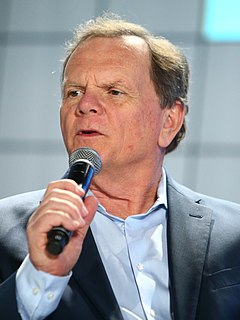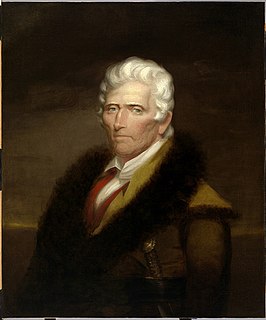A Quote by Jacques Yves Cousteau
We must alert and organise the world's people to pressure world leaders to take specific steps to solve the two root causes of our environmental crises - exploding population growth and wasteful consumption of irreplaceable resources. Overconsumption and overpopulation underlie every environmental problem we face today.
Quote Topics
Related Quotes
The problem the world faces today is that only one-third of the world's population lives in decent circumstances, while half the population of the world lives on one or two dollars a day. And even as we have this poverty and backwardness, we are facing a global environmental crisis. We need developmental models that will take into account the specific and unique position of each country and at the same time will address the environmental crisis.
The Earth faces environmental problems right now that threaten the imminent destruction of civilization and the end of the planet as a livable world. Humanity cannot afford to waste its financial and emotional resources on endless, meaningless quarrels between each group and all others. there must be a sense of globalism in which the world unites to solve the real problems that face all groups alike.
Global warming is not only the number one environmental challenge we face today, but one of the most important issues facing all of humanity... We all have to do our part to raise awareness about global warming and the problems we as a people face in promoting a sustainable environmental future for our planet.
Overpopulation is the problem of the third and fourth World; over-consumption is the problem of the West. The average American child this year will consume as much of the world's resources as twenty children born in India. Deliberate and calculated waste is the central aspect of the American economy. We over-eat, over-buy, and over-built, spewing out our toxic wastes upon the earth and into the air.
The root cause of the looming energy problem - and the key to easing environmental, economic and religious tensions while improving public health - is to address the unending, and unequal, growth of the human population. And the one proven way to reduce fertility rates is to empower young women by educating them.
Although population and consumption are societal issues, technology is the business of business. If economic activity must increase tenfold over what it is today to support a population nearly double its current size, then technology will have to reduce its impact twenty-fold merely to keep the planet at its current levels of environmental impact. For example, to stabilize the climate we may have to reduce real carbon emissions by as much as 80 percent, while simultaneously growing the world economy by an order of magnitude.
We think the problem is out there, when the problem is really in here - who we are and how we experience the world around us. The acoustic ecologist listens, as the primary sense, to the world around us, and I believe that they have a significant contribution to make to all environmental groups who think that they're solving environmental problems, when we're actually all on a spiritual pilgrimage.
Economic growth and environmental preservation are two sides of the same coin. There's no better illustration of that point than the California Clean Tech Open, which challenges California entrepreneurs to bring new, clean technologies to market. I encourage business leaders, policy makers, and environmental advocates to support this innovative, exciting competition.






































